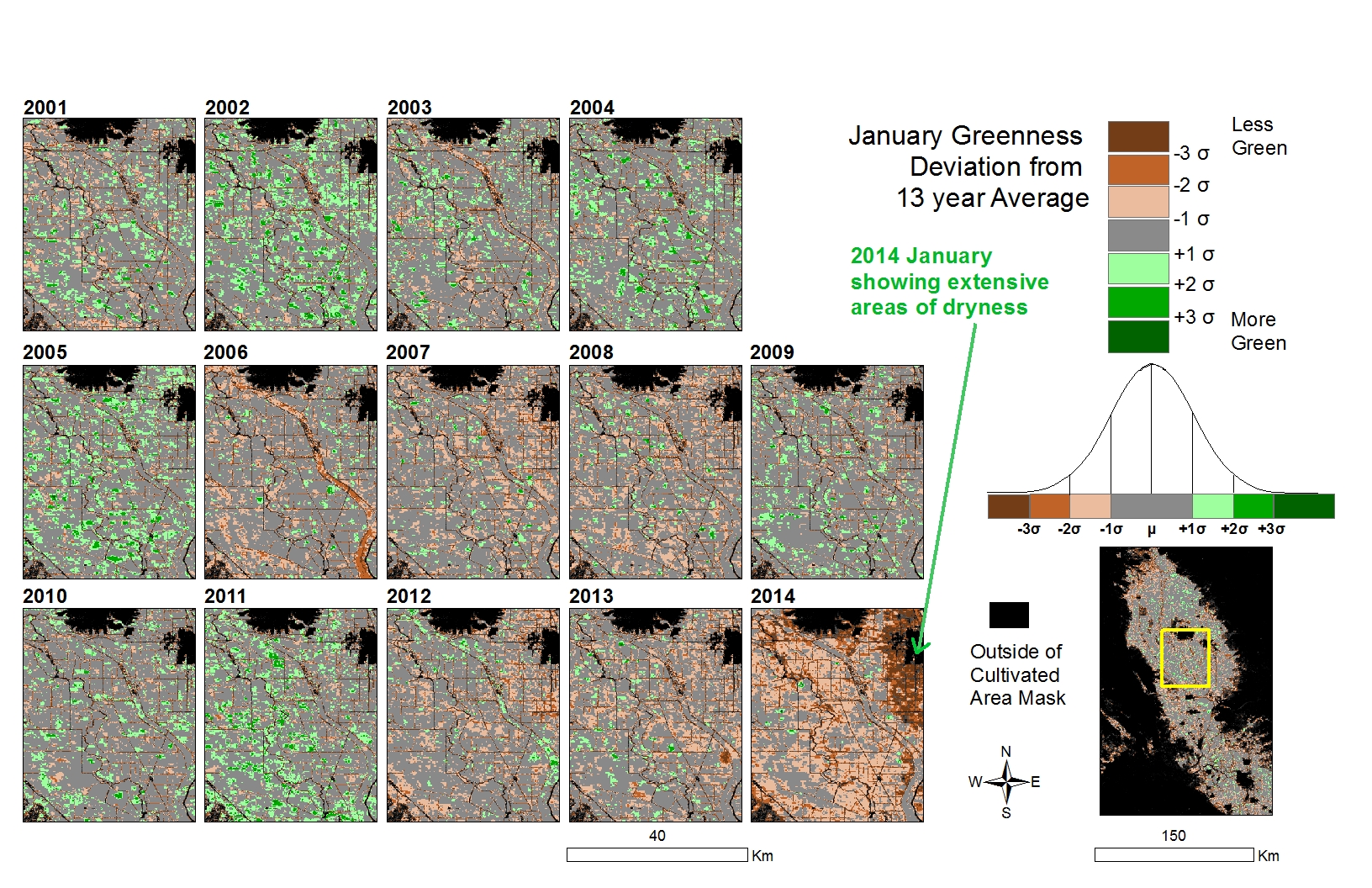Understanding how mitigation or adaptation strategies can be applied locally or regionally in response to climate change is a major issue for land managers. We propose a new and innovative approach to help optimize water use in California’s agricultural areas. We will map water productivity (WP, productivity per unit of water or kg\m3) using advanced remote sensing data (hyperspectral-hyperspatial-multispectral) to pinpoint areas with poor WP due to climate stress and other factors. The "new water" made available if we increase WP of underperforming areas in the irrigated croplands will be quantified, leading to informed application of management practices and associated water savings exactly where they are needed. The approach involves (a) water use (m3\m2) mapping through surface energy balance models, (b) crop productivity (kg\m2) mapping through spectro-biophysical modeling and spatial interpolation using remote sensing, and (c) WP mapping by dividing crop productivity by water use. Within the project, we develop and implement automated cropland classification (ACCA) algorithms that rapidly and routinely compute cropland areas year after year. This research highlights USGS capabilities to supply science to decision makers so that they can act locally, where issues interlinking water, climate, and food are of critical importance for the environment, ecology, and the economy.
https://www.sciencebase.gov/catalog/item/4f79edbbe4b0009bd827f517

Cropland mapping in California: January anomalies comparing current month greenness (MODIS NDVI) in cultivated areas to the mean (µ) and standard deviation (σ) for that month in the 13-year record of MODIS data from 2001 to 2013.

